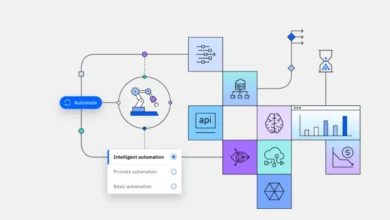10 Tips for Improving Your Online Reputation

Your online reputation holds considerable sway over your professional endeavours and relationships. Given the prevalence of online searches, understanding the importance of managing your digital persona is crucial. This article offers invaluable insights into personal online reputation and its significance. It furnishes ten actionable tips to enhance and control your online presence, encompassing strategies like vigilant monitoring, optimizing social media profiles, and leveraging SEO tactics. By implementing these recommendations, you can cultivate a positive digital reputation and distinguish yourself online.
Contents
- 1 What is Personal Online Reputation & Why is it Important?
- 2 Tip #1: Google Yourself
- 3 Tip #2: Clean Up Your Social Media Profiles
- 4 Tip #3: Create a Personal Website
- 5 Tip #4: Monitor Your Online Presence
- 6 Tip #5: Respond to Negative Reviews and Comments
- 7 Tip #6: Build a Positive Online Presence
- 8 Tip #7: Utilize SEO Strategies
- 9 Tip #8: Network and Collaborate with Others
- 10 Tip #9: Be Authentic and Transparent
- 11 Tip #10: Continuously Monitor and Improve Your Online Reputation
What is Personal Online Reputation & Why is it Important?
Personal Online Reputation is a vital aspect of individuals’ digital presence, encompassing their online image, social media activity, and overall digital footprint. It significantly influences how individuals are perceived both personally and professionally. Managing one’s online reputation becomes increasingly essential as the digital landscape expands. Tools for monitoring reputation enable individuals to promptly address any issues that arise from mentions of their name or brand across the internet. It’s crucial to recognize that online sharing directly impacts perception, with platforms like Google swiftly surfacing information about individuals.
A positive online reputation opens doors to career opportunities by showcasing skills and professionalism and benefits businesses by fostering customer trust and driving growth. Marketers stress the importance of maintaining a favourable online image, as it directly impacts brand perception and customer loyalty. Therefore, consistently managing and monitoring one’s online reputation is imperative in navigating the digital world for a positive personal and professional trajectory.
Tip #1: Google Yourself
One essential tip for managing your online reputation is to regularly Google yourself to assess what information is publicly available about you.
Conducting self-searches on Google can help individuals gain insight into how they are presented online. You can monitor the search results by entering your name and relevant keywords. This process lets you stay informed about public information linked to your online presence. For example, someone like Joan Jett could discover articles, social media profiles, or images associated with her name. By reviewing these search results regularly, you can proactively control your privacy settings, ensuring that your online identity accurately reflects the image you want to portray.
Tip #2: Clean Up Your Social Media Profiles
Maintaining a professional and appropriate presence on social media is critical for enhancing your online reputation. Regularly reviewing and deleting potentially offensive or unprofessional content is an effective strategy. Engaging respectfully with your audience and sharing relevant, helpful content can strengthen your online image. Remember, your online presentation can significantly impact your personal and professional reputation.
Tip #3: Create a Personal Website
Establishing a personal website allows individuals to control the narrative of their online presence, showcase their skills, and optimize their digital footprint.
By utilizing AI tools for website optimization, individuals can enhance the user experience, improve website performance, and attract more visitors. These tools assist in streamlining content management, automating repetitive tasks, and analyzing data to make informed decisions.
A centralized personal branding platform creates a cohesive online identity and boosts credibility and visibility. It is a hub for showcasing achievements, sharing insights, and engaging with a targeted audience. The right mix of AI-powered solutions can significantly boost search engine rankings and online reputation, increasing opportunities and recognition.
Tip #4: Monitor Your Online Presence
Regularly monitoring your online presence, including reviews, mentions, and discussions across various platforms, is essential for effective online reputation management. Leveraging tools like Invoca for review management, sentiment analysis, and tracking online conversations provide valuable insights into how customers and the public perceive your brand.
Proactive reputation management is crucial in today’s digital landscape, allowing you to maintain a positive image and reinforce customer trust by addressing feedback promptly. Various tools such as reputation repair services, social listening platforms, and brand monitoring software aid businesses in staying at the top of their digital reputation management.
For example, Patagonia utilizes social listening tools and reputation repair solutions to swiftly address negative feedback and keep track of online conversations about their brand. The pandemic has further highlighted the importance of maintaining a solid online presence, as businesses rely heavily on technology to monitor and respond to online mentions and reviews efficiently.
Tip #5: Respond to Negative Reviews and Comments
Addressing negative feedback constructively is critical to maintaining a positive online image and reputation.
When responding to negative reviews or comments online, it is essential to show professionalism and empathy. Responding promptly indicates that you care about customer satisfaction and proactively resolve issues.
One effective strategy is publicly acknowledging the feedback and offering a solution or apology. Spectrum Retirement, for example, handles negative reviews by addressing concerns directly, showing empathy towards the reviewer, and inviting them to reach out for further assistance.
By demonstrating a willingness to listen and improve, businesses can turn negative feedback into positive outcomes, showcasing their commitment to customer service and enhancing their online reputation.
Tip #6: Build a Positive Online Presence
Building a positive online presence involves creating valuable content, engaging with your audience, and optimizing digital assets for search engines. Effective SEO strategies are crucial for shaping your online perception, especially in personal branding, crisis communication, and reputation management. By strategically employing SEO techniques, you ensure that your online profiles and content rank high in search results, enhancing visibility and establishing credibility.
Networking with industry professionals, contributing to online discussions, and optimizing content for search results are critical methods for building a positive online presence. Active participation in online communities showcases expertise and builds reputation, while website and content optimization improves search engine rankings, facilitating easier discovery by potential clients or employers.
Tip #7: Utilize SEO Strategies
Effective SEO strategies can help individuals control their online narrative, climb the SERPs, and mitigate reputation risks.
Regarding personal branding, SEO is crucial in shaping your online perception. By curating your online presence through SEO practices, you can ensure that the information available about you aligns with your desired image. Optimizing content with relevant keywords and engaging meta descriptions can help you stand out in search results and attract the right audience.
During times of crisis, communication SEO becomes even more vital. You can steer the conversation more positively by proactively managing your search visibility and monitoring keywords related to the crisis. Enhancing search visibility through strategic link-building and content creation can influence how the public perceives your crisis.
Tip #8: Network and Collaborate with Others
Networking and collaborating with peers, industry leaders, and influencers can expand your reach, credibility, and opportunities in the digital realm.
Professional networking offers many benefits, from access to new insights and knowledge sharing to potential career growth and increased visibility within your industry. Engaging with a diverse network of professionals opens doors to fresh perspectives and innovative ideas and strengthens your brand.
Leveraging AI-driven tools for networking can significantly enhance efficiency by automating tasks such as prospecting, relationship management, and content curation. These tools can help you identify relevant contacts, schedule meetings, and suggest personalized follow-up strategies.
Tip #9: Be Authentic and Transparent
Authenticity and transparency are essential for building trust, credibility, and a genuine connection with your audience in the digital space.
When you present yourself authentically online, you allow your audience to see the natural person behind the screen. Sharing personal experiences, struggles, and achievements can create a deeper bond with your followers.
Transparency goes hand in hand with authenticity, which involves being open and honest about your intentions, products, or services. This honesty can help establish a sense of reliability and integrity in your online interactions.
By maintaining precise privacy settings on social media and other online platforms, you can protect your personal information and control who has access to it. This conscious effort to preserve your privacy demonstrates your commitment to maintaining a safe and secure online presence.
Tip #10: Continuously Monitor and Improve Your Online Reputation
Consistent monitoring and proactive online reputation improvement are essential for avoiding potential reputation risks and maintaining a positive digital image.
Online reputation can make or break a business in the fast-paced digital landscape. To safeguard your credibility, it is crucial to constantly evaluate and manage how your brand is perceived online. By regularly curating content that highlights your brand’s strengths and values, you can shape a favourable narrative around your business.
AI tools for automated reputation management can streamline the process and provide valuable insights. These tools can help detect potential issues early on, allowing you to take proactive steps to address them before they escalate into full-blown crises.
Embracing a proactive approach, such as promptly addressing customer feedback and reviews, can help build trust with your audience and mitigate negative perceptions.
Engaging with your audience through social media platforms and monitoring online conversations lets you stay in tune with public sentiment and swiftly address any concerns.



